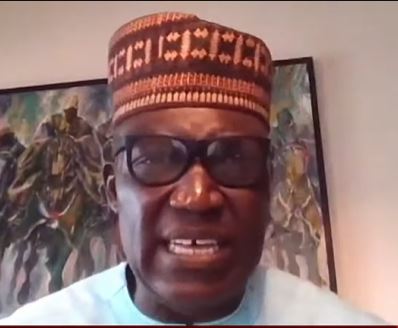Kenneth Thompson Decries Ghana’s Economic Retrogression
Monday, 25 November 2024 | Ghana

Kenneth Thompson, former Chief Executive Officer of Dalex Finance, has painted a bleak picture of Ghana’s economy, citing mismanagement and poor policy decisions as the root causes of the nation’s current economic challenges. Speaking on Joy FM’s Super Morning Show on Tuesday, November 19, Thompson expressed his concerns about the escalating cost of living, unemployment, and the rapid depreciation of the Ghanaian cedi.
Thompson criticized the government for what he described as a regression to the economic conditions of the 1970s. “The Ghana economy has gone back to the seventies, and it will take us another 53 years to get back to 2016,” he said. Reflecting on the currency’s depreciation, he highlighted the stark decline from an exchange rate of GHS4.00 to the dollar in 2016 to over GHS16.00 currently, with no signs of stabilization.
Thompson further accused the government of mismanaging the country’s wealth, resulting in significant economic hardship. “The government has overseen the largest transfer of private wealth to the state, which has since been mismanaged,” he noted.
Pensioners, in particular, are among the hardest hit, he said, pointing to the government’s lack of transparency regarding critical financial decisions. He cited the financial sector cleanup, which cost the nation over GHS25 billion, as an example of opaque spending. “Yet no one has provided transparency regarding how the funds were spent,” he added.
The devaluation of the cedi has also diminished the purchasing power of citizens. Thompson remarked, “The value of the cedi in our pocket is worthless,” a statement that reflects widespread frustration among Ghanaians. He linked the economic downturn to rising challenges in education affordability, increased poverty, and overall decline in quality of life.
Thompson emphasized that these economic woes affect all social classes, including the affluent, who are not immune to the consequences of the declining economy. He also pointed out the psychological toll of the crisis, with many Ghanaians at home and abroad experiencing heightened levels of depression, anxiety, and loneliness.
As the economy continues to deteriorate, Thompson’s comments add to the growing calls for transparency, accountability, and effective solutions to reverse the downward trend. His critique underscores the urgency of addressing the systemic issues that have plunged the nation into economic uncertainty.
Thompson criticized the government for what he described as a regression to the economic conditions of the 1970s. “The Ghana economy has gone back to the seventies, and it will take us another 53 years to get back to 2016,” he said. Reflecting on the currency’s depreciation, he highlighted the stark decline from an exchange rate of GHS4.00 to the dollar in 2016 to over GHS16.00 currently, with no signs of stabilization.
Thompson further accused the government of mismanaging the country’s wealth, resulting in significant economic hardship. “The government has overseen the largest transfer of private wealth to the state, which has since been mismanaged,” he noted.
Pensioners, in particular, are among the hardest hit, he said, pointing to the government’s lack of transparency regarding critical financial decisions. He cited the financial sector cleanup, which cost the nation over GHS25 billion, as an example of opaque spending. “Yet no one has provided transparency regarding how the funds were spent,” he added.
The devaluation of the cedi has also diminished the purchasing power of citizens. Thompson remarked, “The value of the cedi in our pocket is worthless,” a statement that reflects widespread frustration among Ghanaians. He linked the economic downturn to rising challenges in education affordability, increased poverty, and overall decline in quality of life.
Thompson emphasized that these economic woes affect all social classes, including the affluent, who are not immune to the consequences of the declining economy. He also pointed out the psychological toll of the crisis, with many Ghanaians at home and abroad experiencing heightened levels of depression, anxiety, and loneliness.
As the economy continues to deteriorate, Thompson’s comments add to the growing calls for transparency, accountability, and effective solutions to reverse the downward trend. His critique underscores the urgency of addressing the systemic issues that have plunged the nation into economic uncertainty.


 How to resolve AdBlock issue?
How to resolve AdBlock issue?